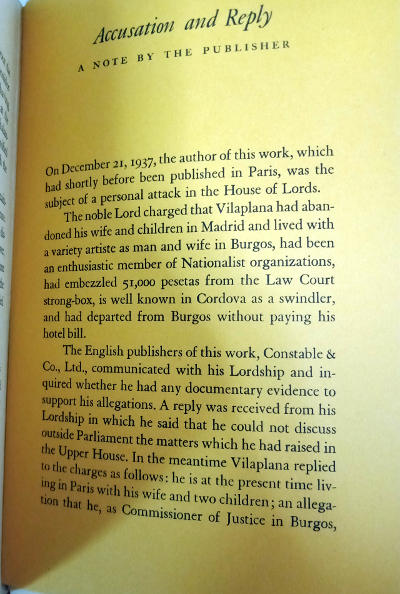The first-hand account of Antonio Ruiz Vilaplana, a Commissioner of Justice in Burgos, Spain, of the Spanish Civil War and the takeover of the city by Franco, who established it as the Nationalist capital. Vilaplana, working for the new regime, was exposed to atrocities which he found intolerable. He fled Spain and lived in France after a year of the Civil War. This book gives an account of the war and takeover of the Franco regime in Burgos, the assassinations and administration, the role of the Church, and so on. The book includes a Publisher’s Note responding to accusations by the British House of Lords that the author was a embezzler, swindler, and so on.
About the Spanish Civil War (from Wikipedia):
The Spanish Civil War was a civil war in Spain fought from 1936 to 1939. Republicans loyal to the left-leaning Popular Front government of the Second Spanish Republic, in alliance with anarchists, of the communist and syndicalist variety, fought against an insurrection by the Nationalists, an alliance of Falangists, monarchists, fascists, capitalists, conservatives and traditionalists, led by a military group among whom General Francisco Franco soon achieved a preponderant role. Due to the international political climate at the time, the war had many facets and was variously viewed as class struggle, a religious struggle, a struggle between dictatorship and republican democracy, between revolution and counterrevolution, and between fascism and communism. According to Claude Bowers, U.S. ambassador to Spain during the war, it was the “dress rehearsal” for World War II. The Nationalists won the war, which ended in early 1939, and ruled Spain until Franco’s death in November 1975.





